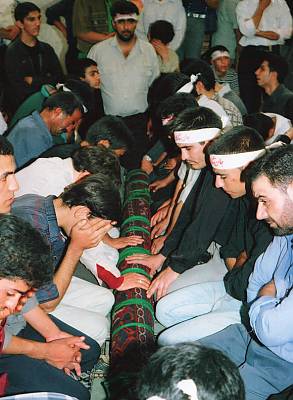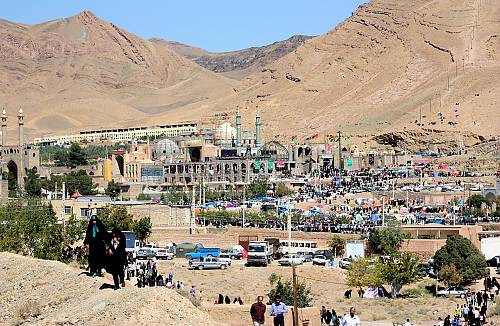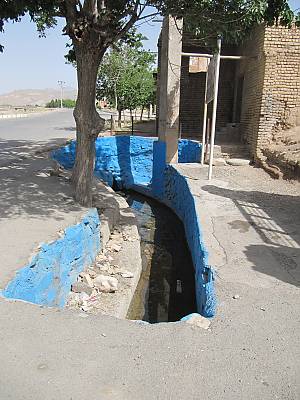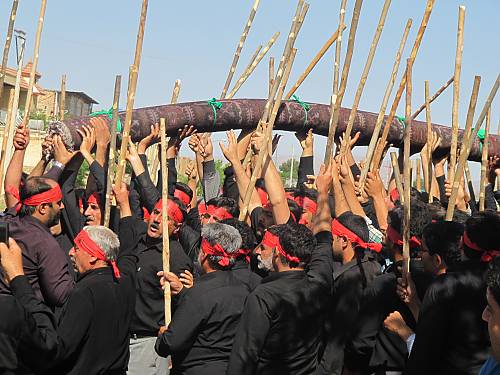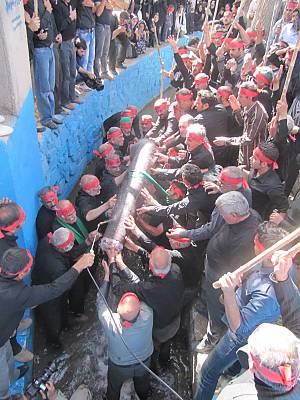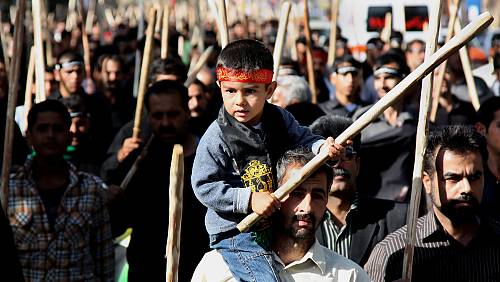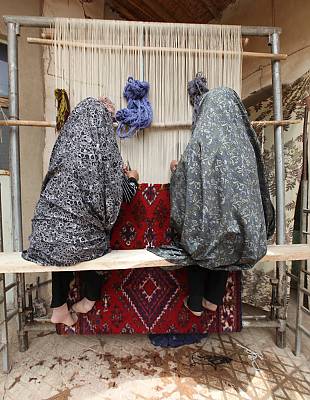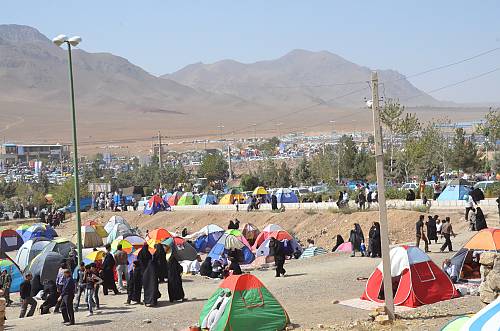Qālišuyān rituals of Mašhad-e Ardehāl in Kāšān
Inscribed in 2012 (7.COM) on the Representative List of the Intangible Cultural Heritage of Humanity

Qālišuyān rituals are practised in Iran to honour the memory of Soltān Ali, a holy figure among the people of Kāšān and Fin. According to legend, he was martyred, and his body found and carried in a carpet to a stream, where it was washed and buried by the people of Fin and Xāve. Today, Soltān Ali mausoleum is the site of a ritual where a carpet is washed in the holy stream by a huge gathering. It takes place on the nearest Friday to the seventeenth day of the month of Mehr, according to the solar-agricultural calendar. In the morning, people of Xāve gather at the mausoleum to sprinkle rosewater on the carpet. Having completed the wrapping rituals, they deliver it to the people of Fin outside, who rinse the carpet in running water, and sprinkle rosewater drops with neatly cut and beautifully decorated wooden sticks. The carpet is then returned to the mausoleum. People of Kāšān contribute a prayer-carpet and the people of Našalg celebrate their ritual the following Friday. These communities maintain oral transmission of the procedures, but also recreate the tradition by adding new and festive elements.
